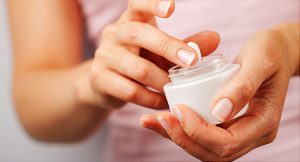Ayurveda is a holistic system of healing. The treatment it prescribes takes into consideration, diet, exercise, relaxation, medication, massage and external care. In fact, yoga and meditation are part of the Ayurvedic way of life. That is why Ayurveda is effective in the treatment of diabetes, as it prescribes a healthy lifestyle and diet. As everyone knows, management of blood sugar levels is absolutely imperative in diabetes. Naturally, if blood sugar levels are not in control there is the risk of complications, including skin conditions that take long to respond to treatment. Diabetes can lead to tissue damage and can, therefore, affect the eyes and vital organs of the body.
The ancient sages of India placed high value on raw, natural foods and fresh fruit and vegetable juices. For diabetes, Ayurveda advocates a diet that is low in fats, sugar and starch, but high in vitamins and minerals. The general feeling of well being actually improves the mental outlook, helping the body to cope with stress and adds a zest to life.
Diabetics also know the importance of exercise for managing blood sugar levels. Exercise also adds a healthy glow to the skin by improving blood circulation to the surface. Begin by doing deep breathing exercises, like pranayama, in front of an open window. Check with your doctor before starting exercise. Walking is excellent, as it helps to exercise the entire body.
Skin problems are common in diabetes. The skin becomes quite fragile and gets grazed easily. Bacterial infections, boils and abscesses, skin irritation, dry or itchy skin are some of the common skin conditions that diabetics suffer from. Dryness of the skin is probably most common. In extreme cases, there may be flakiness and itching too. The skin is also susceptible to fungal infections. Unless infections are dealt with in good time, they can spread and lead to complications. Of course, control of blood sugar levels must be ensured, by regular monitoring and medication. Diet and calorie control is also important, as all diabetics know. Long-term diabetes can cause decreased blood flow to the skin, leading to serious skin conditions that require medical treatment. A diabetic is also more susceptible to fungal and bacterial infections that take long to heal.

With diabetes, the skin becomes dry. Sun-exposure also causes loss of moisture. The daily care routine is extremely important, as it helps to control dryness and other problems. If the skin is very dry, avoid soap, or use mild glycerin soap for bathing. A cleansing cream or gel containing aloe vera should be used for the face. Aloe Vera is a powerful moisturizer and also has soothing properties. Apply sunscreen with high SPF of 30 or 40 before going out in the sun. Keep the skin moisturized at all times and use a moisturizer under make-up.
Every night, after cleansing, use a nourishing cream. Look for a nourishing cream, containing ingredients like wheat-germ oil, carrot seed, almond, as they are rich in Vitamins A and E. Spread the cream lightly on the face and massage it on the skin with a few drops of water. Ayurvedic ingredients like almond, sandalwood, saffron, lemon and even pearls have helped in formulating products for the area around eyes. The application of outer-eye creams helps to maintain the elasticity of the skin and prevent early wrinkles.
For the skin on the body, Ayurveda advocates sesame seed (til) oil. Apply and massage it into the skin of the body before bath. Immediately after your bath, apply body lotion while the skin is still damp. This helps to seal in moisture.